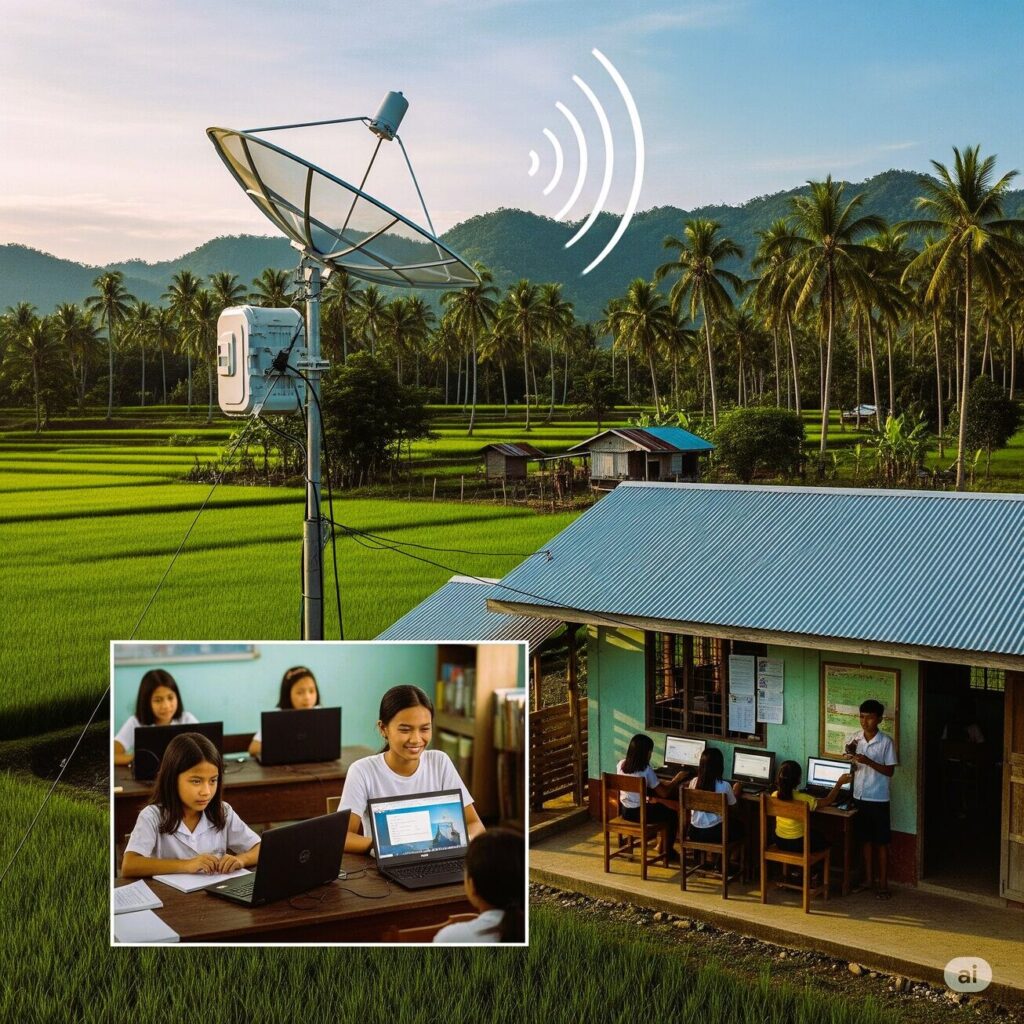A member of the Philippine House of Representatives has recently voiced support for the adoption of satellite technology to deliver highly reliable internet connectivity to public schools in remote and underserved areas across the Philippines.
Makati City Rep. Luis Campos Jr said, “Our goal must be to ensure that no learner is left behind simply because of geography. By harnessing the power of satellite internet services, we can overcome physical barriers and bring digital access to schools that have long been out of reach of traditional infrastructure.”
Campos emphasized that equitable access to digital tools is critical to improving the quality of public education and preparing Filipino students for a globally competitive future.
Satellite connectivity offers a cost-effective and scalable solution, especially in geographically isolated and disadvantaged areas (GIDAs), according to Campos.
He commended the Department of Information and Communications Technology (DICT) and all partners exploring innovative ways to close the connectivity gap in public schools.
Campos said that “investing in advanced solutions like satellite technology is not only timely—it is essential.” He has called on both public and private stakeholders to collaborate in fast-tracking initiatives that will strengthen digital infrastructure in all learning environments.
“Our children deserve the best tools to learn, regardless of where they live,” Campos concluded. “Let us work together to make this vision a reality.”
The DICT earlier bared plans to deploy satellite internet services to provide connectivity to up to 15,000 of the country’s most isolated public schools.
Campos, who has been an advocate of digital inclusion and educational reform, supports the government’s Free Wi-Fi for All Program, which aims to establish up to 50,000 public internet “hotspots” nationwide, providing Filipinos with free and password-free access to the internet.
He also reiterated his call for Congress to enact legislation that would empower regulators to mandate faster mobile internet speeds from private telecommunications companies (telcos). “We need faster mobile internet to drive national productivity. Slow connectivity results in significant economic and personal efficiency losses.”
Campos has been pushing for the passage of House Bill 10215, which seeks to reclassify high-speed internet as a basic telecommunications service—a right for every Filipino—rather than a value-added service.
Under the bill, the National Telecommunications Commission (NTC) would be empowered to set progressively increasing minimum mobile internet speed standards that telcos must meet within specified deadlines.
Telcos that fail to comply could face penalties of up to ₱1 million per day—or ₱365 million per year—until they meet the required benchmarks. (Story courtesy of the House of Representatives of the Philippines)
Image above generated by Gemini Advanced
